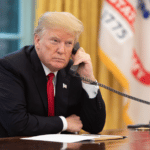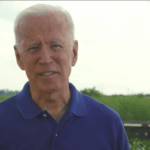


The Trump transition team is preparing to announce the United States' withdrawal from the World Health Organization (W.H.O.) on January 20, 2025, marking the first day of his second term in office.
Breitbart reported that after a failed attempt to leave in 2020, President-elect Donald Trump’s team is pushing for an immediate withdrawal from the W.H.O., a move that could sever the U.S.'s role as the organization’s largest donor and largest host of career bureaucrats.
The U.S. is the largest single donor to the W.H.O., providing 16% of its budget, which totaled $6.83 billion in 2024. In addition, over 8,000 U.S. career bureaucrats work within the W.H.O.
Despite this substantial contribution, the organization has faced mounting criticism, particularly from conservative groups who argue that U.S. taxpayer dollars are being misused. Trump, in particular, has long criticized the W.H.O. for its relationship with China, especially during the COVID-19 pandemic.
In 2020, Trump initiated the process of withdrawing from the W.H.O., citing its ties to China and the lack of transparency in the handling of the virus. However, that process was not completed, and President Joe Biden reversed the decision when he took office in 2021. Now, Trump's team is determined to expedite the withdrawal, aiming to do so immediately on January 20, 2025, to reverse Biden’s inauguration-day action.
Ashish Jha, who served as Biden’s White House coronavirus response coordinator, explained that Trump’s team wants to withdraw from the W.H.O. on day one of his second term. This would symbolize a reversal of Biden’s actions on the same day four years ago, when he rejoined the organization.
“There are lots of people who are going to be part of the inner circle of the administration who do not trust the W.H.O. and want to symbolically show on day one that they are out,” Jha said. This reflects growing distrust toward the W.H.O. within Trump’s circle.
One person familiar with the plans remarked that Trump’s team is not concerned about the W.H.O.’s reaction to the withdrawal. “The same W.H.O. that we left in the first administration? It seems like we wouldn’t much care what they have to say,” the individual said.
Trump has repeatedly described the W.H.O. as “very China-centric” and criticized it for acting as a tool for China’s global influence.
In April 2020, he accused the organization of downplaying the seriousness of the COVID-19 outbreak and of siding with China on key issues related to the pandemic.
“They seem to be very China-centric. That’s a nice way of saying it, but they seem to be very China-centric, and they seem to err always on the side of China,” Trump said. This criticism is central to the push within his administration to sever ties with the W.H.O.
While the W.H.O. plays a critical role in global health, Trump’s team remains focused on the belief that the organization is not serving U.S. interests. This move is expected to be one of the defining actions of his second term, should it proceed as planned.
The U.S.'s departure from the W.H.O. would not only end its financial contributions but could also disrupt global health initiatives that rely on American funding. As the largest donor, the U.S. plays a pivotal role in the organization’s ability to operate and respond to health crises worldwide.
Although the Trump transition team has not commented directly on the planned withdrawal, the move would likely have major diplomatic implications. The loss of U.S. support could undermine the W.H.O.'s efforts in areas such as pandemic response, vaccination campaigns, and health research.
Experts warn that withdrawing from the W.H.O. could strain international health cooperation. The U.S. has been a leading player in global health initiatives, helping to combat diseases and support health systems in developing countries. Without U.S. participation, many fear that critical health challenges could go unmet.
Despite these concerns, Trump’s administration seems set on following through with its decision. The W.H.O.’s handling of the COVID-19 pandemic has been a key issue for Trump’s supporters, who argue that the organization failed to act swiftly and transparently in response to the outbreak.
If the U.S. moves forward with its withdrawal on January 20, 2025, it will mark a dramatic shift in American foreign policy.
The decision would likely have far-reaching effects on both U.S. and global health strategies. It remains unclear how the W.H.O. and other international organizations will respond.
The Biden administration has not yet indicated how it would react to a second Trump withdrawal, nor has it clarified whether it would seek to rejoin the W.H.O. should Biden be re-elected. In any case, the Trump administration’s stance signals a more isolationist approach to global health governance.



